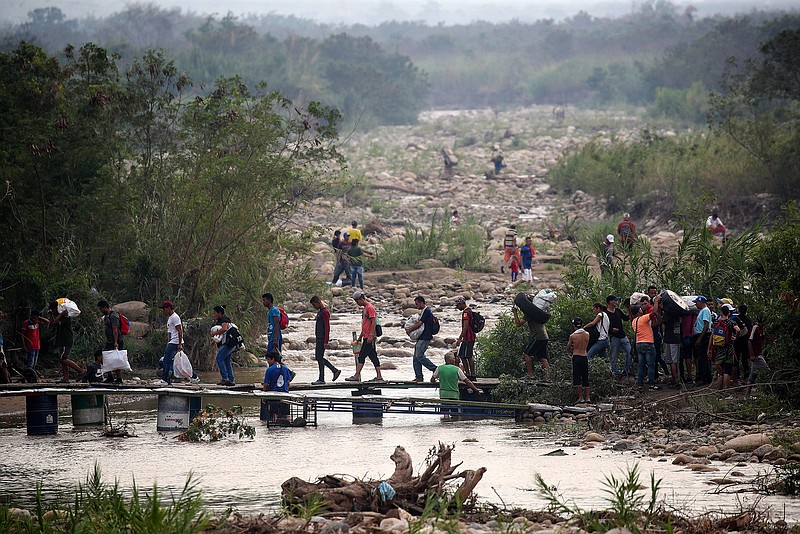BOGOTA, Venezuela-Venezuela's migrant and refugee crisis could become the world's largest by 2020, matching or surpassing Syria, if the political and humanitarian situation in the country doesn't improve in coming months.
David Smolansky, the coordinator for the Organization of American States' working group on Venezuelan migrants, said that jarring reality comes from estimates made by OAS staff, who believe that more than 5 million Venezuelans may be living abroad by the end of this year and that more than a million more could leave in 2020.
If Venezuela's violence, economic collapse and political instability continue unabated "we could be at Syria levels by 2020," he told the Miami Herald.
Syria's grinding civil war has produced 6.7 million refugees. The Venezuelan exodus already represents the largest migratory crisis in the Western Hemisphere, as more than 4 million people have left the country in recent years, but it's the pace of the exodus that has alarmed experts.
Earlier this month, the United Nations said the outflow of Venezuelans was "staggering."
"From some 695,000 at the end of 2015, the number of refugees and migrants from Venezuela had skyrocketed to over 4 million by mid-2019," the U.N. said in a report.
The crush of migrants has strained regional governments and is starting to create push-back. Last week, Peru, home to more than 768,000 Venezuelan migrants, began requiring that they apply for visas before arriving. And Ecuador, which has 263,000 Venezuelan migrants, has also suggested that it might tighten its immigration controls.
"This is not the time to put more restrictions on Venezuelan migrants and refugees," Smolansky said from Washington, D.C. "People are fleeing not because they want to, but because they're victims of a criminal regime."
Instead, he said the region needs to acknowledge that Venezuelans are refugees, escaping violence and political oppression, and that the international community needs to do more to support them.
The issue of Venezuelan migration, and the region's response, is expected to be one of the hot topics at next weeks' OAS General Assembly in Medellin, Colombia.
The Nicols Maduro regime says the UN and OAS figures are exaggerated, intended to paint the government in the worst possible light, but it hasn't provided figures of its own.
When talking about the Venezuelan migrant crisis, most of the attention is focused on countries where their absolute numbers are greatest, such as Colombia (1.3 million) and Peru, but Venezuela's smaller neighbors are often overlooked, Smolansky said.
Last week, he and an OAS delegation were visiting the Dutch islands of Aruba and Curacao, home to 11,000 and 16,000 Venezuelan migrants, respectively.
While those numbers are relatively small, they represent 15% of the population of each country-a larger percentage than anywhere else.
Dozens of Venezuelans have died in recent months trying to reach the neighboring islands. And when they do arrive it's under the most precarious conditions. Smolansky said he talked to one young man who took a 13-hour boat trip and had to swim the final yards, arriving in a new country destitute and soaked.
To complicate matters, the vast majority of Venezuelans are undocumented-unable to legally access healthcare, education or work and subject to deportation.
Smolansky said he was petitioning the government of the Netherlands, "Venezuela's border with Europe," to give Venezuelans on the islands temporary papers, as other countries have done.
But the only solution for the crisis is for Maduro to step down, he said.
"Once we recover our democracy and liberty the outflow will drop substantially," he said. "And there will be incentives for people to return."

